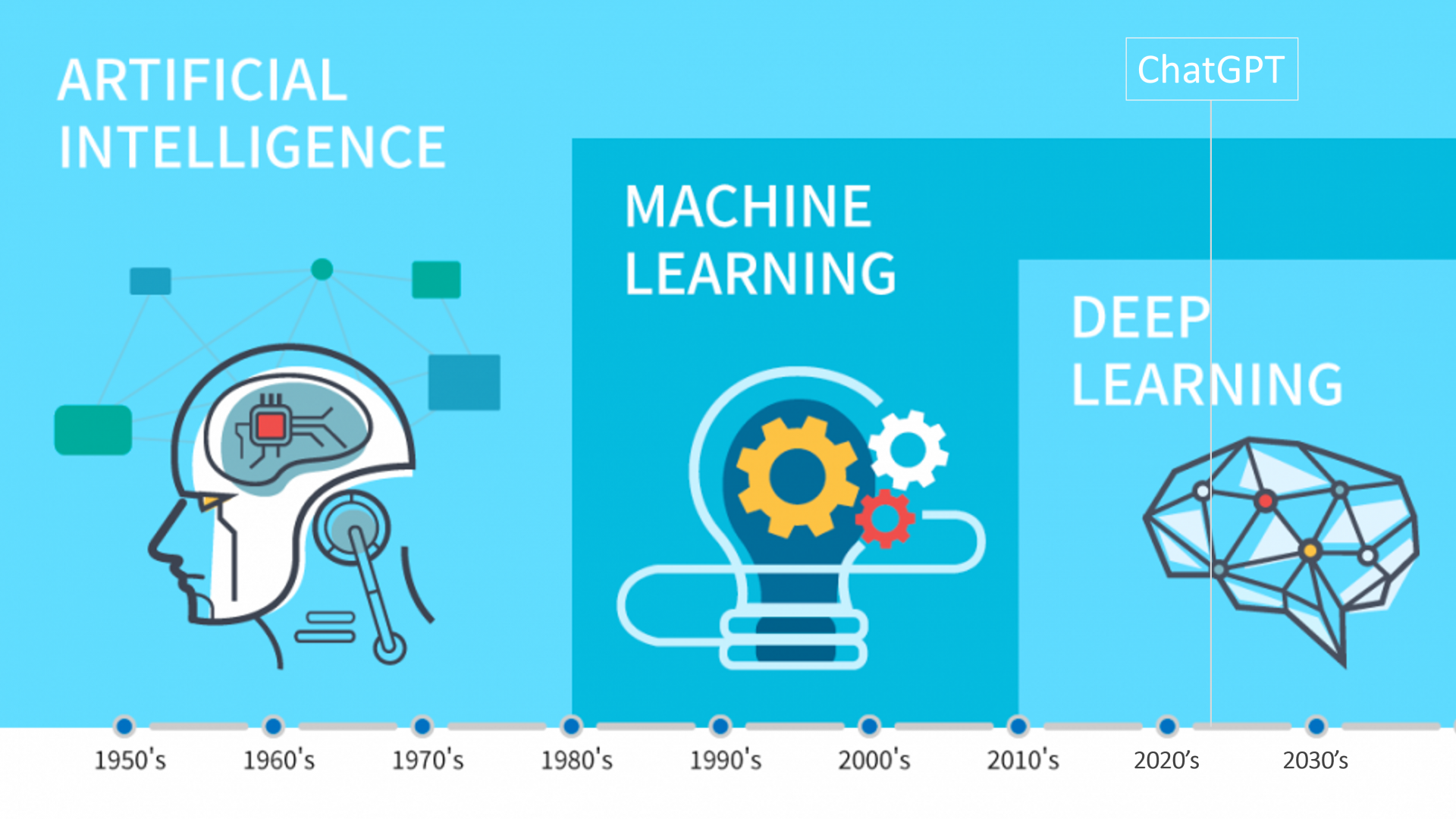
In the summer of 1958, the New York Times published a short column introducing a self-learning electronic computer named the Perceptron ("Electronic ‘Brain’ Teaches Itself" was the exact title at the time). This "Brain" made its way to the graveyard of inventions fast enough, yet the seed of Artificial Intelligence (AI) was planted.
Since the launch of ChatGPT (Generative Pre-trained Transformer) on November 30th 2022, thousands of articles have been written in almost every language. This comes with no surprise given it has quickly established itself as one of the most rapidly expanding consumer applications ever built, amassing 100 million users in just the first couple of months following its release. Ease of access, immediate responses and the ability to construct narratives and well-argued views capture the imagination of the users.
Artificial intelligence has long stepped foot in all sort of laboratories and dictates how many everyday applications and objects behave. Washing machines, cars, TVs, online search, translations or assistants include embedded algorithms that learn our preferences in order to improve our experience and increase their creators' profits. Usually, though, these models only fulfil one function at a time and our interaction with them is indirect.
How ChatGPT works?
ChatGPT’s background engine (GPT-3) simultaneously performs many different functions but this is not all it is doing; It also provides direct interaction with the end users. When people familiarize themselves with some technology, they invent uses far beyond what its very creators had imagined, unleashing unimaginable potential. Back when the first mobile phones were released, no one could predict that they would soon help us find our way in the streets, check our pulse or replace our cameras wallets and IDs.
It is clear that ChatGPT represents a significant development in the history of AI. However, the level of attention it received over-emphasised the capabilities of the tool and the company that developed it, Open.ai.:
ChatGPT sells the illusion of extraordinary intelligence and we are fooled in the same way as we are with calculators or automated translation: we confuse planned execution with conceptual thinking.
AI, in all its known executions, offers valid answers to well-structured questions. It follows simple to highly complex recipes with common ingredients and it may be doing so better and faster than the average cook. Nevertheless, all of the world's structural changes came with new recipes, not by recycling the existing ones.
Open.ai had presented outstanding achievements even before ChatGPT and has also announced the immediate release of even greater ones, but there is others in the field too. The AI game has already begun with impressive results to show both from traditional players (DeepMind – Google, Meta, ByteDance, etc.) and new players on both sides of the pond. At this point, it may be worth pointing out that it is much easier for companies to launch new technologies when no significant commercial interests are at stake. For example, instead of evolving online search, Google would risk its dominance in it if they were to integrate unnecessarily complex algorithms that could backfire and create operational concerns. On this note, let’s not forget that Meta was forced to withdraw Galactica only days after its release a mere couple of weeks before ChatGPT came out.
Accelerating the production and storage of data combined with increasing processing power and human ingenuity guarantees rapid developments. As a result, AI is transforming our present and shaping our future faster than any other form of technology.
We don’t risk anything if we can accurately predict the advent of an advanced AI that would exceed our capabilities.
The concerns
In this perspective, many questions are raised: Who will control this new power? Will we control intelligent machines, or will they control us? Will they replace us or merge with us? What will be the role of man in the age of AI?
Our answers will determine the future.
For now, Artificial Intelligence is still a toddler; it learns "unexpectedly" fast and surprises us with what it says or seemingly comprehends. Nonetheless, its actions are well-known like mapped footpaths. We better deal with it before it reaches adolescence though as then it will be late!
Christos Papadopoulos, CEO


